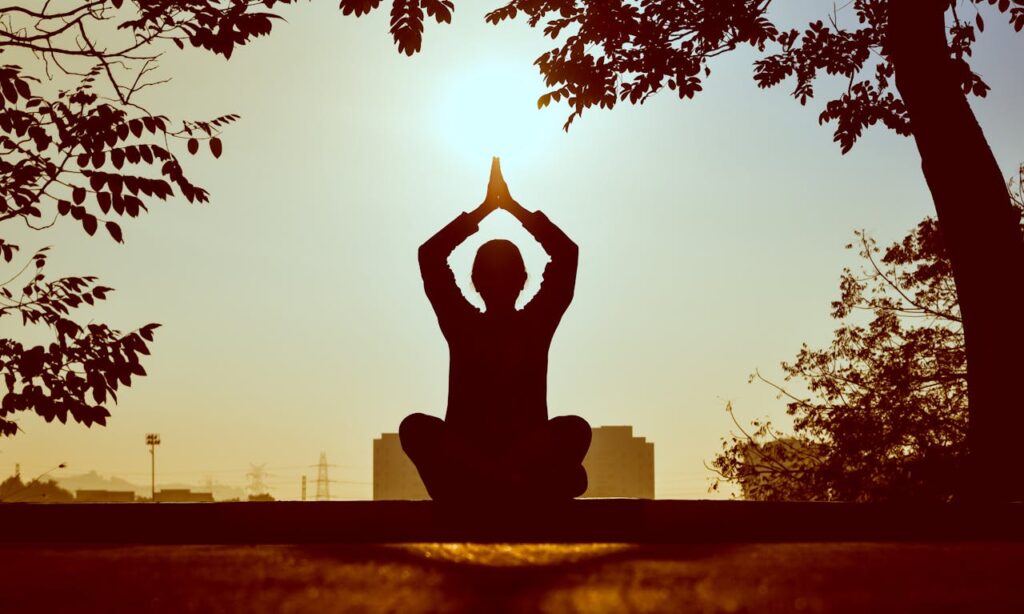
Meditation, an ancient practice rooted in various cultural and spiritual traditions, has garnered significant attention in modern times for its profound impact on mental, emotional, and physical well-being. As an accessible and versatile tool, meditation offers a pathway to inner peace and a deeper understanding of oneself. This article explores the origins, benefits, and practical approaches to meditation, highlighting its relevance in today’s fast-paced world.
Origins and Evolution
Meditation has a rich history that spans thousands of years and encompasses diverse traditions such as Hinduism, Buddhism, Taoism, and various contemplative practices in the Christian, Jewish, and Islamic faiths. While each tradition has its unique methods and goals, the common thread is the cultivation of mindfulness, concentration, and a deeper connection to the present moment.
In the West, meditation began to gain popularity in the 20th century, largely due to the influence of Eastern spiritual teachers and the integration of mindfulness practices into therapeutic settings. Today, meditation is practiced by millions of people worldwide, transcending religious and cultural boundaries.
The Science Behind Meditation
Modern scientific research has provided compelling evidence of meditation’s benefits. Studies using neuroimaging techniques have shown that regular meditation can lead to structural changes in the brain, such as increased gray matter density in areas associated with learning, memory, and emotional regulation.
Additionally, meditation has been linked to a reduction in the activity of the amygdala, the brain’s fear center, which helps decrease
anxiety and stress. Functional MRI scans have also demonstrated that meditators have enhanced connectivity between brain regions involved in attention and executive function.
Physiologically, meditation can lower blood pressure, improve heart rate variability, and boost the immune system. These findings underscore the profound impact of meditation on both mental and physical health.
Types of Meditation
Meditation encompasses a wide range of practices, each with its unique focus and technique. Some of the most well-known types include:
- Mindfulness Meditation: This practice involves paying attention to the present moment without judgment. Practitioners observe their thoughts, emotions, and bodily sensations, fostering a state of heightened awareness and acceptance.
- Loving-Kindness Meditation (Metta): This technique focuses on cultivating compassion and love towards oneself and others. Practitioners repeat phrases such as “May I be happy, may I be healthy,” gradually extending these wishes to loved ones, acquaintances, and even adversaries.
- Transcendental Meditation (TM): TM involves the use of a specific mantra, a word or phrase, that is silently repeated to help the mind settle into a state of restful alertness. This practice aims to transcend ordinary thought processes and reach a state of pure consciousness.
- Guided Meditation: In guided meditation, a teacher or recording provides instructions and visualizations to help practitioners focus their minds and achieve a specific mental state, such as relaxation or insight.
- Body Scan Meditation: This technique involves systematically focusing attention on different parts of the body, promoting relaxation and heightened bodily awareness.
Practical Tips for Beginners
Starting a meditation practice can be both exciting and challenging. Here are some practical tips for beginners:
- Start Small: Begin with just a few minutes of meditation each day and gradually increase the duration as you become more comfortable.
- Create a Routine: Set aside a specific time each day for meditation.
Consistency is key to developing a sustainable practice. - Find a Comfortable Position: Sit or lie down in a comfortable position that allows you to remain alert yet relaxed. Use cushions or a chair if needed.
- Focus on Your Breath: Paying attention to the breath is a simple and
effective way to anchor your mind in the present moment. - Be Patient: Meditation is a skill that takes time to develop. Be patient
with yourself and avoid judging your progress. - Use Resources: Guided meditations, apps, and online courses can provide valuable support and structure, especially for beginners.
Conclusion
Meditation is a timeless practice that offers a multitude of benefits for the mind, body, and spirit. Whether you seek to reduce stress, enhance self-awareness, or cultivate a sense of inner peace, meditation provides a versatile and accessible tool for personal growth. As scientific research continues to validate its efficacy, meditation stands as a powerful testament to the enduring wisdom of ancient traditions and their relevance in our modern lives. Embrace the journey of meditation and discover the transformative potential it holds for you.
